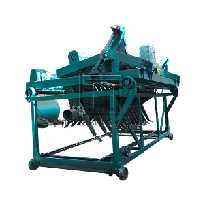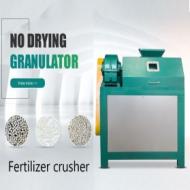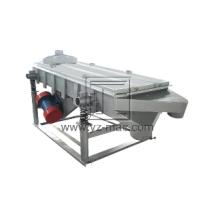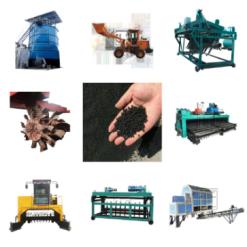Fertilizer granule machine
A fertilizer granule machine, also known as a granulator, is a specialized equipment designed to convert organic matter and other raw materials into compact, uniform-sized granules. These granules serve as convenient carriers for nutrients, making it easier to handle, store, and apply fertilizers.
Benefits of a Fertilizer Granule Machine:
Controlled Nutrient Release: Fertilizer granules provide a controlled release of nutrients, ensuring a steady and sustained supply to plants. This promotes optimal plant growth, minimizes nutrient loss, and reduces the risk of over-fertilization.
Improved Handling and Application: Granulated fertilizers are more convenient to handle, store, and transport compared to bulkier or powdered forms. The uniform size and shape of the granules allow for easy spreading, accurate dosing, and reduced wastage during application.
Enhanced Nutrient Efficiency: Fertilizer granules can be engineered to have specific nutrient compositions, tailored to meet the nutritional requirements of different plants and soil conditions. This customization increases nutrient efficiency and reduces the need for excessive fertilizer application.
Reduced Environmental Impact: By using granulated fertilizers, the risk of nutrient runoff and leaching is minimized. The controlled-release properties of the granules help retain nutrients in the root zone, reducing the environmental impact on water bodies and ecosystems.
Working Principle of a Fertilizer Granule Machine:
A fertilizer granule machine operates on the principle of agglomeration, which involves the binding or compacting of small particles into larger granules. The machine typically uses a combination of mechanical pressure, moisture, and binder materials to form the granules. This process can be achieved through different methods such as extrusion, compaction, or drum coating, depending on the specific granulator design.
Applications of Fertilizer Granule Machines:
Agricultural Crop Production: Fertilizer granule machines play a vital role in commercial agricultural operations. They are used to manufacture granulated fertilizers tailored to specific crop nutrient requirements. The granules provide a balanced and controlled release of nutrients, supporting healthy plant growth and maximizing crop yields.
Horticulture and Gardening: Fertilizer granule machines are also used in horticulture and gardening applications. They allow for the production of specialized granulated fertilizers for different types of plants, including flowers, vegetables, and ornamental plants. The uniform-sized granules make it easier to apply the right amount of fertilizer to each plant, promoting healthy growth and vibrant blooms.
Organic Fertilizer Production: Fertilizer granule machines are instrumental in the production of organic fertilizers. By processing organic materials such as compost, animal manure, or crop residues, the machines transform them into granulated organic fertilizers. These granules provide a convenient and efficient way to supply nutrients to organic farming practices.
Custom Blends and Specialty Fertilizers: Fertilizer granule machines are capable of producing custom blends and specialty fertilizers to meet specific nutrient requirements. This flexibility allows for the creation of tailored fertilizers for unique soil conditions, specialty crops, or specific nutritional needs.
A fertilizer granule machine is a valuable tool for transforming organic matter and other raw materials into nutrient-rich granules. The benefits of using a fertilizer granule machine include controlled nutrient release, improved handling and application, enhanced nutrient efficiency, and reduced environmental impact. These machines find applications in agricultural crop production, horticulture, organic fertilizer production, and the creation of custom blends and specialty fertilizers.








